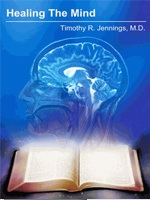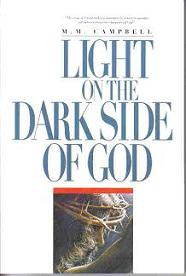What is God Really Like?
A Summary of the Character of God Issue
What is God really like? Have you ever wondered? In recent years, the topic of the character of God has been under more study and discussion. Why is this important?
I have read a number of books on the issue and taken the approach, personally, to put God in the best light possible in terms of my understanding of His character. After all, the better I understand His character to be, the more I love Him and desire a relationship with Him. It has certainly helped in my spiritual walk. On this page I will try to summarize the issue from the perspective of my own experience.
As of the start of 2016 I have just launched a new website specifically on the topic of God's character. See it at http://www.characterofgod.org.
What is God Really Like? There has always been a tension between ideas of God's love and His justice. Somewhere in that continuum lies the truth about what He is like. For much of history, God's justice has been emphasized. The fire and brimstone, forever-burning hell concept of God has actually been responsible for making many people into atheists. Thinking people simply have a hard time accepting such a deity. I was raised Roman Catholic, a system that taught that if you were not "in God's good books" you would end up in "the wrong place" and stay there forever. Most people in that system don't really think through (and I didn't) what that says about God's character.
I have since taken the position to "prove all things" from the word of God. The Bible says that "God is love" (1 John 4:8, 16). It doesn't use the adjective to say that "God is loving" although He is that. The Bible describes Him also as just and merciful and kind which are all descriptive adjectives. But His ultimate attribute is not simply that He is loving but that He is love (the noun) itself. While God is just (adjective) he is not described as justice (noun).
When God says "I change not" (Mal 3:6) this seems to be a reference to what He is at the core of His being. This is what we want to understand as far as possible.
What really got me started trying to answer "what is God really like?" several years ago was reading the book Light on the Dark Side of God by M.M. Campbell. The author, Marilyn Campbell, from Idaho, has written other books on the topic and has a website: www.the-character-of-god.com. She brings out how passages that seem to support a "dark side" to God, when rightly understood by allowing the Bible to explain itself, really show that God is light; He always acts in accordance with how Jesus portrayed Him while He walked this earth. I have this book featured on my website and, with the help of a friend, have distributed copies to those requesting it from this page.
 From about 2004 until I published my first book (In the Heart of the Earth: The Secret Code That Reveals What Is In the Heart of God) in 2009, I was very absorbed in a detailed study of the timing of Jesus' resurrection. I did not know when I started my study that the conclusion of the book would include a very significant connection to the character of God issue. I read a lot on this topic and I have never seen this particular gem of truth shared anywhere else. Read about and access that book here.
 Then, just a couple of years ago, I did a study on forgiveness. It turns out that the Bible translates forgiveness from different original words that have different meanings. It is important to recognize that forgiveness is a two-party transaction; it is both given and received. For example, the Greek word "charizomai" describes forgiveness as experienced in the heart/mind of the forgiver, the one doing the forgiving. The word "apheimi" describes forgiveness as experienced by the forgivee, the one receiving the forgiveness. When these words are understood and their uses are examined in context, it turns out that God always forgives every sin whether confessed or not. In Col 2:13 God had forgiven (charizomai) the sins of those described as "dead in your sins." In 1 John 1:9 what sounds like conditional forgiveness (apheimi) is referring to us receiving forgiveness. The unforgivable sin could be understood simply as that sin for which we will not receive forgiveness - check it out. My booklet Biblical Forgiveness: Are there Two Types? published early in 2013 describes the different meanings of forgiveness in detail. Read more about that here.
 Then, later that year (2013), I came across a video presentation The Seven Myths of Forgiveness by Dr. Timothy Jennings a psychologist in Colledgedale, Tennessee where he directs Come and Reason Ministries. This presentation, part of a series titled Healing the Mind, connected very well with my understanding of forgiveness. God does indeed forgive every sin. What has been understood as His "forgetting sins" is merely His not allowing our sins to affect His love for us and His desire to have a relationship with us. Like we would say to someone who has offended us "oh, just forget it" meaning it doesn't affect my regard for you. God does not somehow blot the memory of sin from His omniscient mind. The record will remain as part of the evidence of the sin problem and His solution for it but God does not allow our sins to affect His love and care for us.
Dr. Jennings also explores the relationship between justice and love and the very fundamentals of the gospel. I have now studied this in detail and hope to soon be adding material to my website to simply explain it and to further this truth. I have come to call it the Biblical Healing Model as opposed to the Traditional Legal Model of the gospel. The world (even the vast majority of Christianity) has been thinking that God is justice at the expense of the greater truth that God is love (not that He isn't just in all His judgments).
Surprisingly, there is strong opposition to this position. Some claim that the character of God proponents want to swing the pendulum of understanding too far in the direction of love at the expense of justice.
I see a few reasons for this opposition:
- - tradition - people like to believe like they always have
- - admitting a wrong belief is very hard for some
- - denominations and large groups are difficult to change as, too often, men and institutions are held in high esteem
- - people do not want to make the effort to study and reason carefully from the scriptures
- - many people, perhaps unconsciously, tend to want to understand God to be like they are
My Summary
I have pondered the question 'What is God really like?' As I hope to be spending eternity with Him, I think it is a reasonable question. I have read much on the topic and have come to the conclusion that indeed God is love; that everything He does is entirely consistent with that most-important attribute of His character.
I wish to do all I can to shed abroad this "... light of the glorious gospel of Christ, who is the image of (the same character as) God ..." (His Father) (2 Cor 4:4). If, after reading the material on this website in relation to this, you see light in it, I would appreciate your support in prayers and pointing others to my site and other material that portrays God as the One Who is Love itself.
You can read much more of my attempts to answer "what is God really like?" on my website at these pages and the pages they link to:
Jesus' Character Should Match His Father's
Lake of Fire and Brimstone
May you grow to love Him more as you explore and learn about His wonderful character and come to understand what God is really like.
|








New! Comments
Have your say about what you just read! Please leave a comment below.